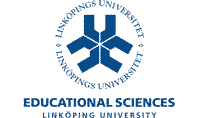
|
Visa svensk kursplan |
|
COURSE CATEGORY Fristående kurs MAIN FIELD OF STUDY SUBJECT AREA |
COURSE CODE | 926G08 |
- have advanced knowledge in how different functions are connected to human anatomy and how these can be affected
- be able to account for processes in the landscape and how these shape and create the preconditions for life.
- be able to apply an interdisciplinary method to current health issues where connections to human use of resources are in focus
- have developed subject-theoretical and didactic knowledge in order to process and handle scientific material for teaching on different levels in school.
The course consists of two modules comprising 7.5 HE credits each
The first part covers the human body, its structure and function and how different disorders are related to the concept of health Fundamental parts are anatomy, physiology, organs, organ systems, the chemistry of cells and tissue, molecular biotechnology and regulation on different levels. These functions of the internal environments are studied based on what we eat, and why and how these are related to external environments, the agricultural landscape.
The second part covers landscape shaping processes. Central parts are geological processes, volcanism, sedimentation, weathering and the geological circulation. The contents are related to bedrock, soil types and soil and are problematised from the notion that we live due to the existence of these natural processes. Man often interacts with these processes, which results in an incorrect use of resources, and in turn causes many different problems. This is particularly clear concerning the hydrological circulation.
Students failing an exam covering either the entire course or part of the course two times are entitled to have a new examiner appointed for the reexamination.
Students who have passed an examination may not retake it in order to improve their grades.
60 HE credits with a specialisation in natural science or equivalent.
The course is carried out in such a way that both men´s and women´s experience and knowledge is made visible and developed.
|
||||||||||||||||||||||||||||||||||||||||||||||||||||||||||||||||||||||||||||||